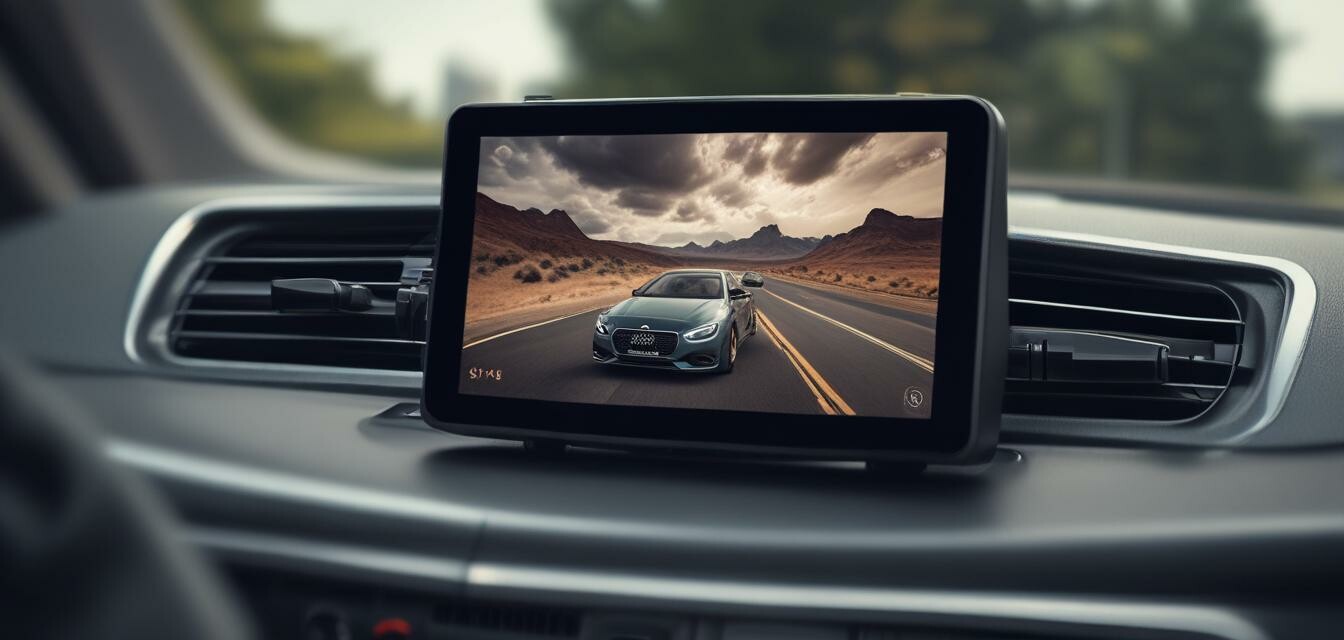
Comparing Dashcam Storage Solutions: SD vs. Cloud
- Dashcam storage solutions can significantly impact the accessibility and safety of your footage.
- SD cards offer flexibility and control over your data, while cloud storage provides remote access.
- Understanding the pros and cons of each option helps in making an informed decision for your needs.
Choosing the right storage solution for your dashcam footage is crucial for ensuring that your valuable recordings are safe and accessible whenever you need them. In this article, we will examine two prominent storage options: SD cards and cloud storage. By evaluating the pros and cons of each, you can make an informed decision based on your specific needs and preferences.
Understanding Dashcam Storage Options
Modern dashcams primarily rely on two types of storage solutions: SD cards and cloud storage. Each option comes with its unique set of features, benefits, and challenges. The choice between the two can depend on factors like data accessibility, storage capacity, cost, and user preferences.
SD Card Storage
SD cards are one of the most common storage solutions for dashcams. They offer a range of options in terms of capacity and speed, making them versatile for various users.
Pros of SD Card Storage
- Control: Full ownership of your data without reliance on internet connectivity.
- Cost-Effective: Generally, purchasing an SD card can be a one-time investment.
- Quick Access: Easily insert the card into any compatible device for immediate viewing.
- Expandable Capacity: Options to upgrade to larger capacity cards as needed.
Cons of SD Card Storage
- Physical Damage: Vulnerable to loss or damage if not handled properly.
- Limited Lifespan: Possible deterioration over time or with frequent overwriting.
- Manual Management: Requires users to manage and back up footage regularly.
Cloud Storage
Cloud storage has emerged as a modern solution for dashcam footage, providing users with enhanced accessibility. This method relies on internet services to store data remotely.
Pros of Cloud Storage
- Access Anywhere: View and download footage from any location with an internet connection.
- Automatic Backups: Often includes features for automatic syncing and backups.
- No Physical Storage Limits: Potential to have vast amounts of storage without needing physical space.
- Enhanced Security: Data is often protected with encryption and secure servers.
Cons of Cloud Storage
- Ongoing Costs: Subscription fees for cloud storage services may accumulate over time.
- Dependency on Internet: Requires a stable internet connection, limiting accessibility in areas with no signal.
- Privacy Concerns: Concerns about data breaches or unauthorized access to sensitive footage.
Key Differences Between SD and Cloud Storage
| Feature | SD Card Storage | Cloud Storage |
|---|---|---|
| Accessibility | Local, via card | Remote, internet required |
| Cost | One-time purchase | Subscription fees |
| Data Control | Complete control | Requires trust in service provider |
| Backup Options | Manual | Automatic |
| Vulnerability | Physical damage or loss | Online security risks |
Which Storage Solution is Right for You?
Ultimately, the choice between SD card storage and cloud storage for your dashcam will depend on your individual preferences and circumstances. If you value control, quick access, and cost-effectiveness, an SD card may be the best choice for you. However, if you prefer convenience, automatic backups, and accessibility from any location, cloud storage could be the ideal option.
Frequently Asked Questions (FAQs)
- Can I use both SD and cloud storage for my dashcam?
Yes! Many users opt to use both storage solutions for enhanced data security and flexibility.
- How do I know which SD card to get for my dashcam?
It's essential to choose a card that meets your dashcam's requirements in terms of speed class and storage capacity.
- Are cloud storage services safe for sensitive footage?
Most reputable cloud storage providers offer encryption and protection measures to safeguard your data.
Pros of SD Cards
- Cost-effective and reliable for local storage.
- Easy transfer of data to other devices without internet.
Cons of SD Cards
- Susceptible to physical damage and loss.
- Involves manual efforts for backing up data.
Pros of Cloud Storage
- Universal access from any device with internet.
- Automatic backups ensure data security.
Cons of Cloud Storage
- Recurring subscription fees for storage.
- Dependence on internet connectivity for access.
For further insights into dashcam features, consider visiting our other articles on Buying Guides and News and Trends. Understanding the variety of available options will help you make the best choice for your dashcam needs.